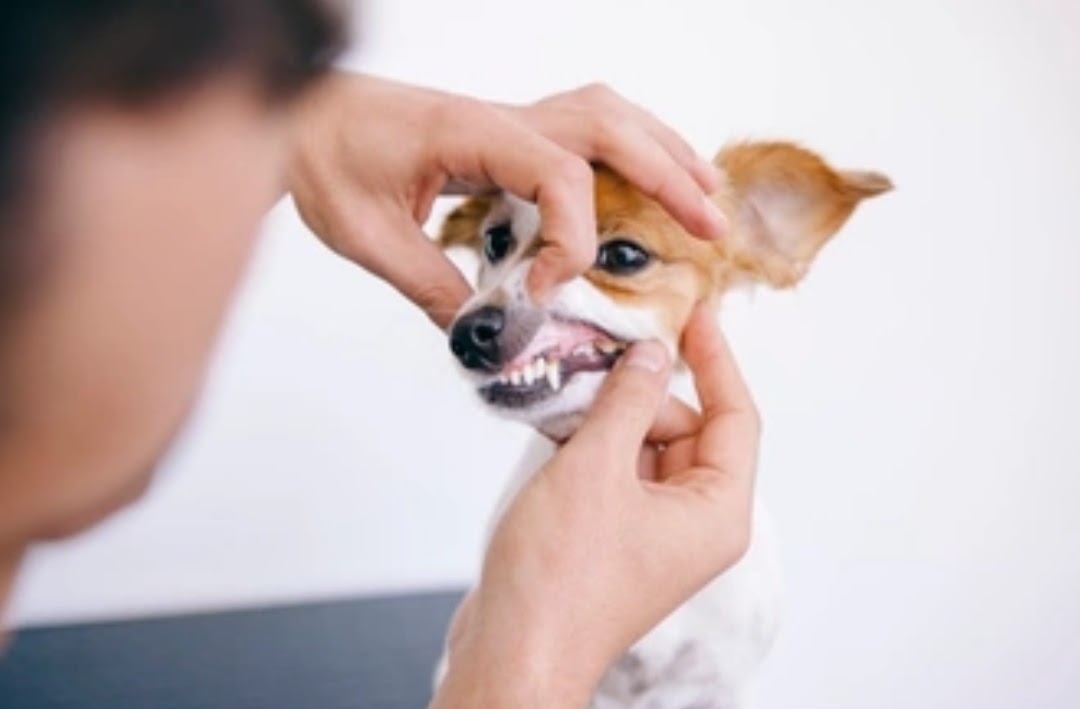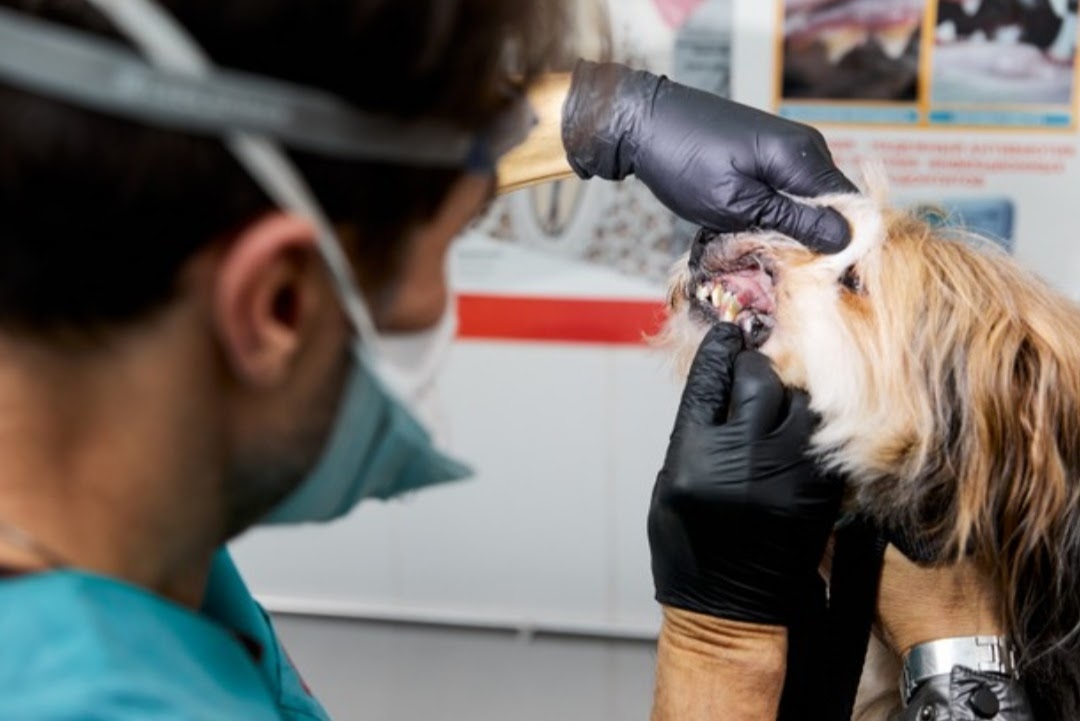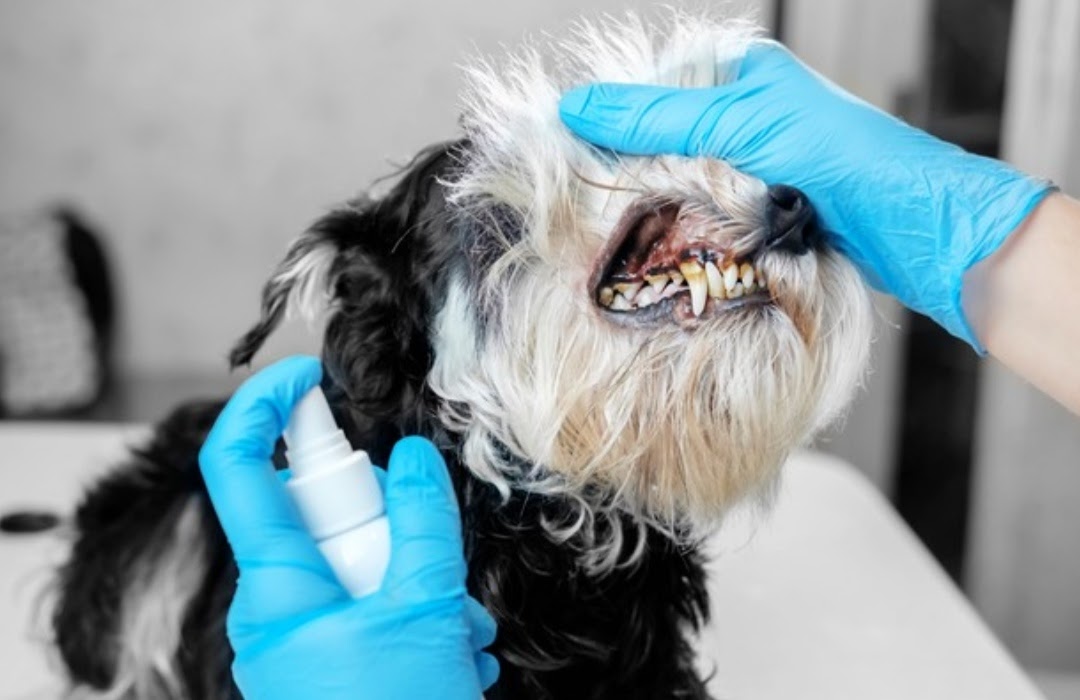Pet dental health facts is a very important issue that everyone should know about. Dental disease is one of the most common health issues facing our pets and it's easily preventable.
Do you have pets?
Love pets?
Or even interested in pets?
If the answer is yes, you should know more about Pet dental health facts and how to care about pet dental health.
Important Pet dental health facts you should know:
-Pet are just like humans as they start with baby teeth that are replaced with adult ones.
-Cats have 30 permanent teeth and dogs have 42.
-The most common disease we can see in our adult pets is periodontal disease(gum and tooth diseases).
It's known that proper dental hygiene of our pets can extend their lives by 2-4 years or even more.
-Most pets get the dental disease by age 3.
-Another important Pet dental health fact you should know is that diseases of teeth and gum can also cause systemic disease and damage other organs like the heart, liver, and kidney.
-Dental disease can cause a blood-borne infection that travels to other organs and can cause serious systemic diseases such as heart valve problems and inflammation of the heart and liver.
-So, caring for your pet's teeth is very important for their overall health, not just their pet dental health facts.
Still interested in Pet dental health facts so you should know Signs Of Dental Disease:
-Bad breath odour or halitosis.
-Drooling of saliva.
-Abnormal chewing of food.
-Refusal to eat or loss of appetite.
-Dropping food.
-Bloody discharge from mouth or gum.
-pain in the mouth and discomfort.
- Broken or lost teeth.
-Extra teeth or retained baby teeth.
-Discoloration of teeth or covering by tartar.
-Swelling of gums or around the mouth.
-Sneezing or nasal discharge.
Other Pet dental health facts to know:
Pets with the dental disease become irritable so any change noticed in your pet's behaviour should be taken into concern and need a visit to a veterinarian.
Also, be careful during the examination of your pet's mouth and remember that a painful animal may bite.

Pet dental health problems:
Unlike humans, dental cavities are less common in pets but pets can have many dental problems men can have.
Causes of pet dental problems:
-Gum and tooth disease (periodontal diseases).
-Broken teeth and roots.
-Infected teeth or abscess.
-Tumours in the mouth.
-Cysts in the mouth.
-Malocclusion of teeth and bite.
-Fractured jaw.
-Palate defects as cleft palate.

Periodontal disease is one of the most important Pet dental health facts:
-It's the most common dental disease in pets.
-Periodontal diseases occur in most pets when they reach the age of 3 and the condition may worsen if proper examination treatment and follow-up are not carried out.
-Early detection and proper treatment are so important.
-Advanced cases of periodontal disease may acquire severe pain and discomfort.
-Periodontal disease can cause systemic disease as mentioned above.
-Periodontal disease starts by forming plaques that may harden to form tartar.
-Tartar above the gum line can easily be seen and removed.
-Tartar or plaque below the gum line is severe and damaging and can cause an infection that damages the jaw bone and the tissues connecting the tooth to the jaw bone.
-Periodontal disease is graded on a scale from 0 to 4.
Treatment of periodontal disease
-Dental cleaning and proper dental hygiene.
-Regular oral examination and annual check-up.
-X.ray may be done to determine the severity of the disease.
-Anaesthesia helps to perform dental procedures on your pet with better cleaning and x-ray if needed.
Importance of x-ray in Pet dental health facts:
-Can find root abnormalities, or unerupted teeth or bone loss, underlying infection, or abscess.
-An X-ray should be done with every dental procedure.

What makes Pet dental health facts so important?
People are told that once a year dental hygiene and check-ups are extremely important for their proper dental care. What we aren’t always told is how important these same cleanings are important for our pets.
We also know that pets rarely receive proper dental care, which has led to 80 percent of dogs and 70 percent of cats having the periodontal disease by the time they are three. Therefore, we are here to help pet owners understand the need for proper dental care and give them the information they need to provide it for their pets.
Also, proper dental care will help keep your pet from developing a wide variety of dental health problems, such as periodontal disease, which is caused by the build-up of bacteria in the oral cavity. These bacteria form a film over their teeth called plaques. As the bacteria die, they can become calcified by the calcium in your pet’s mouth. The calcified plaque is called tartar, and it can also lead to gingivitis, which can lead to an infection in the root of their tooth. In the late stages of periodontal disease, the tissues around their tooth are destroyed, and the socket that holds the tooth in its place erodes, which their causes tooth loss.
Another common dental issue is broken teeth. Chewing on hard toys and treats like antlers and bones can break your pet's teeth. A broken tooth exposes the nerve of the tooth, which is very painful. Also, the exposed nerve can become infected and cause more problems for your pet. At this point, the tooth may need to be removed.
Dental cleaning is an important issue in Pet dental health facts:
How is it done? During a veterinary dental cleaning, veterinarians will put your pet under general anaesthesia to protect both your pet and the veterinarian from harmful effects. The vet doctor will use dental tools to remove the plaque and tartar from the teeth. Then, the veterinarian will use a special polishing paste that smooths out any scratches in the teeth. A fluoride treatment will then be put on the teeth to help strengthen and desensitize the teeth, while also preventing more plaque and tartar from developing.
While your pet is being seen for a cleaning, the vet will also get dental x-rays to check on your pet’s teeth above and below the gumline. These x-rays will allow your vet doctor to see any problems that wouldn’t be visible on the surface of the tooth. The vet will also check for broken or infected teeth.
How can you help your pet?
Pets must go in for regular dental hygiene as veterinary dentistry can remove built-up plaques. However, there are a few things you can perform at home to help keep your pet’s teeth and gums healthy as well. The best thing you can do for your pet’s dental health is to brush their teeth. Dog's and cats aren’t that different from humans, and daily brushing can prevent the build-up of tartar and plaques, which can lead to periodontal disease. While daily brushing isn’t always so easy, focusing on frequent brushing your pet’s teeth can save the teeth down the road. Buy pet-specific toothpaste and either a regular toothbrush, and you can start brushing your pet’s teeth easily.
You should learn a way that allows your pet to get used to brushing. Let your pet lick some of the toothpaste off of the brush. This lets your pet get used to the taste and the smell of the toothpaste and the feel of the brush. The first few times, only brush the front teeth. As your pet feels more comfortable and relaxed, you can start brushing all your teeth.
Although it is not as effective as brushing, you can also buy oral products that help kill the oral bacteria. Some toys and treats can help remove tartar build-up from your pet’s teeth, but also not all of these toys and treats will help.
Summary
Pets suffer so much from dental disease but they are just better at hiding it and live with that discomfort daily. So, please be kind to your pet and do regular veterinarian checkups.
By: Dr Asmaa Saad Shendia



You must be logged in to post a comment.